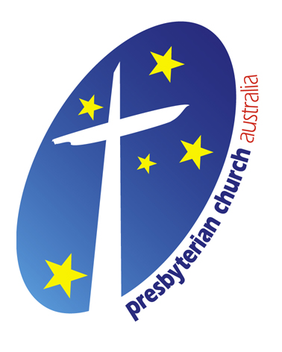Related Research Articles

Presbyterianism is a Reformed (Calvinist) Protestant tradition named for its form of church government by representative assemblies of elders. Though there are other Reformed churches that are structurally similar, the word Presbyterian is applied to churches that trace their roots to the Church of Scotland or to English Dissenter groups that formed during the English Civil War.

Congregationalism is a Protestant, Reformed (Calvinist) tradition in which churches practice congregational government; where each congregation independently and autonomously runs its own affairs.
The Orthodox Presbyterian Church (OPC) is a confessional Presbyterian denomination located primarily in the United States, with additional congregations in Canada, Bermuda, and Puerto Rico. It was founded by conservative members of the Presbyterian Church in the United States of America (PCUSA), who objected to the rise of Liberal and Modernist theology in the 1930s. The OPC is considered to have had an influence on evangelicalism far beyond its size.

The Canadian and American Reformed Churches (CanRC) is a federation of Protestant Reformed (Calvinist) churches in Canada and the United States, with historical roots in the Reformed Churches of the Netherlands.

The Presbyterian Church of Australia (PCA), founded in 1901, is the largest Presbyterian denomination in Australia. The larger Uniting Church in Australia incorporated about 70% of the PCA in 1977.

The Free Presbyterian Church of Ulster is a Calvinist denomination founded by Ian Paisley in 1951. Doctrinally, the church describes itself as fundamentalist, evangelical, and separatist, and is part of the reformed fundamentalist movement. Most of its members live in Northern Ireland, where the church is headquartered, and in County Donegal. The church has additional congregations in the Republic of Ireland, Great Britain and Australia, and a sister denomination in North America, the Free Presbyterian Church of North America, which has congregations in Canada and the United States. It also has a sister denomination in Nepal which was formed from the Nepal mission to the Unreached in November 2013.

The Ethiopian Evangelical Church Mekane Yesus is a Lutheran denomination in Ethiopia. It is the largest member church of the Lutheran World Federation. It is a Lutheran denomination with some Pentecostal influence and one Presbyterian-leaning synod, with a large Pietistic following.

Kitui County is a county in the former Eastern Province of Kenya with its capital and largest town being Kitui, although Mwingi is also another major urban centre. The county has a population of 1,136,187. and an area of 30,496 km2. It lies between latitudes 0°10 South and 3°0 South and longitudes 37°50 East and 39°0 East.
The Evangelical Presbyterian Church is a Calvinist, Christian evangelical denomination that is found only in Northern Ireland, where it is the smallest of the Presbyterian churches. It was formed on 15 October 1927 by Rev. James Hunter (1863–1942), former minister of Knock Presbyterian Church (Belfast), and James (W.J.) Grier, a former student at the Assembly's College. They were joined by others who seceded from the Irish Presbyterian Church.
The Presbyterian Church of the Philippines (PCP), officially The General Assembly of the Presbyterian Church of the Philippines, is a growing evangelical, Bible-based Reformed church in the Philippines. It was officially founded by in 1986 and the General Assembly was organized in September 1996.
Presbyterian Church in Uganda is a conservative Reformed Calvinistic denomination in Uganda with almost 100 churches in 5 presbyteries in the late 2000s.
The Africa Evangelical Presbyterian Church (AEPC) is a growing conservative Presbyterian and Reformed Church which adheres to the Westminster Confession of Faith started in Kenya, later spread to the surrounding countries like Burundi, Tanzania, Congo and as far as Zimbabwe. The headquarters of the church is located in Nairobi, Kenya. The current Moderator is Rev. Dr Joseph Mutei installed on Sunday 26th June 2022.
The Presbyterian Church in Sudan or also the Presbyterian Church in South Sudan is a major Reformed denomination in South Sudan, when it become independent from Sudan.

The Presbyterian Church in Korea (HapDong) is an Evangelical Presbyterian denomination, which is the biggest Christian church in South Korea. The headquarters of the church is in Seoul, South Korea.
The Bible Christian Faith Church is a fundamental Reformed and Presbyterian denomination in Kenya, Africa with ties with the Free Presbyterian Church in Ulster.
The Africa Gospel Unity Church was founded in 1964 by an untrained pastor who left the National Holiness Mission. The Africa Gospel Unity Church adheres to the 1689 Baptist Confession of Faith. Most congregations are in rural areas. The church's leadership is all-male. In 2004, there were 3,500 members in eighty congregations and eighty house fellowships.
The East Africa Christian Alliance (EACA) is a fundamentalist organization and regional arm of the International Council of Christian Churches, set up in opposition to the All Africa Conference of Churches. The current chairman is Bishop Richard Kivai.
The Kosin Presbyterian Church in Korea, also called Korea-pa, is an Evangelical Reformed and Presbyterian denomination in the Republic of South Korea. Although, congregations have spread all over North America and in many other countries.
References
- ↑ Fasse, Christoph. "Address data base of Reformed churches and institutions". Reformiert-online.net. Retrieved 9 August 2017.
- ↑ "Reformed Bible College & Technical School Mwingi, Kenya". Reformed Bible College & Technical School Mwingi, Kenya. Retrieved 9 August 2017.
- ↑ "Minister's Message – August 2012" (PDF). Pceasydney.org.au. Archived from the original (PDF) on 2017-02-16. Retrieved 2017-08-09.
- ↑ "Reformed Bible College & Technical School Mwingi, Kenya". Reformed Bible College & Technical School Mwingi, Kenya. Archived from the original on 2013-06-15. Retrieved 9 August 2017.
- ↑ "Faith College of the Bible - Affiliation". Archived from the original on 2013-09-02. Retrieved 2013-06-10.